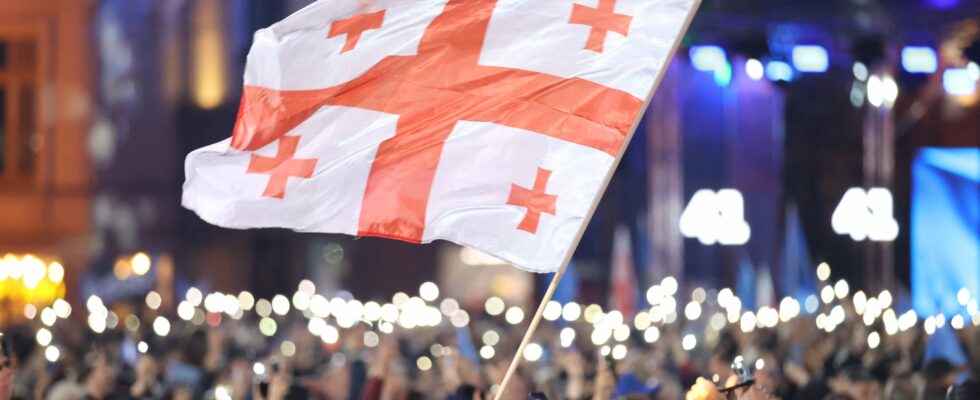Is the debate closed? The electoral commission confirmed this Thursday, October 31, the victory in the legislative elections of the ruling party in Georgia, the Georgian Dream. A result contested by the pro-European opposition and the president, who rejected a summons from the prosecution to detail her accusations of fraud. This recount of around 12% of polling stations and 14% of ballots “did not result in a significant change in the previously announced official results”, the electoral commission said, confirming the Georgian Dream’s large lead in office since 2012 , facing an opposition coalition. According to the almost final official results, the first is credited with 53.9% of the votes, against 37.7% for the second.
The opposition coalition accuses the Georgian Dream of having “stolen” the vote, of wanting to call into question the membership of this former Caucasian Soviet Republic in the European Union and of having engaged in a pro-authoritarian drift. Russian. After initially announcing the victory of the pro-European opposition on the basis of exit polls, President Salomé Zourabichvili, breaking with the government, refused to recognize that of the Georgian Dream, and denounced a “sophisticated” system of frauds following “a Russian methodology”. Thousands of people also demonstrated their discontent on Monday in Tbilisi to denounce a vote, according to them, “stolen”.
Summoned by the prosecution as part of the investigation launched into this “alleged falsification” of the vote, Salomé Zourabichvili announced on Wednesday that she had “no intention” of going there. Prime Minister Irakli Kobakhidze, who believes on the contrary that the elections were “entirely fair, free, competitive and clean”, promised that “European integration” remained Tbilisi’s “main priority”, and wanted a resumption of discussions with Brussels.
“Irregularities”
The Georgian Ministry of the Interior announced the arrest of two people, suspected of stuffing a ballot box in a provincial polling station. The prosecution opened 47 legal files for alleged violations of the electoral law. The opposition group Strong Georgia sees these investigations as a sham, and has mocked a “prosecutor’s office controlled by Russia”.
Internationally, the Kremlin has rejected accusations of interference in the Georgian electoral process. Washington and Brussels, who were concerned about “irregularities”, have, for their part, requested investigations. In its annual report on enlargement published on Wednesday, the European Commission warned that it would “not be able to recommend the opening of accession negotiations” unless Georgia “changes course”. Membership in the EU, like that in NATO, is included in the Georgian constitution.
A test ballot
The European Union had made this election a test in the perspective of this accession. After the promulgation in the spring of a law “on foreign influence” inspired by Russian legislation which the Kremlin uses to muzzle civil society and the opposition, Brussels froze the accession process as a form of protest. This law, which restricts the rights of LGBT people, is a source of discord with the EU and the West. The United States, for example, took sanctions against Georgian officials for their “brutal repression” of the protests that followed.
Some leaders of the Georgian Dream, including its leader, the powerful and wealthy Bidzina Ivanishvili, have increased their hostile declarations towards the West. During the campaign, his party presented itself as the only one capable of preventing Georgia from the same fate as Ukraine, against a backdrop of Russian-Western rivalries. This country of four million inhabitants, bordering the Black Sea, remains deeply marked by a brief war in 2008 with the Russian army. At the end of this conflict, Russia, a historic power in the region, installed military bases in two Georgian separatist regions, Abkhazia and South Ossetia, whose unilaterally proclaimed independence it recognized.
